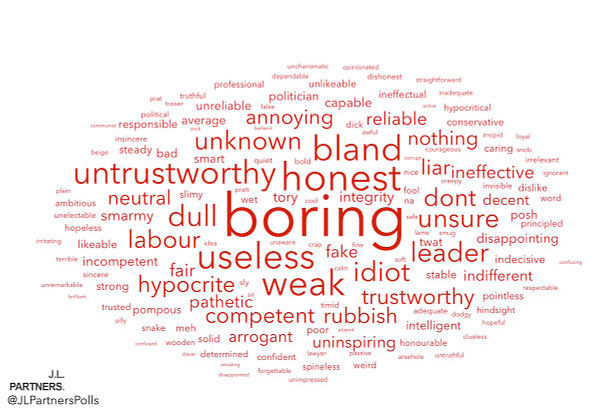Mr Rules trapped in the rake factory
Keir Starmer's claim to be squeaky clean makes it easier for media mud to stick
“We’ll be responding in due course…” Keir Starmer used that phrase three times in a 30-second interview by ITV News about a Parliamentary Standards Commissioner’s investigation into his late filing of details on gifts and income. Once again it was like his media training had been conducted by Max Headroom, skittering, repetitive and only vaguely convincing as human. If the Google engineer gulled into believing a chatbot is sentient had been dealing with Starmer, I don’t think he’d be so certain.

The details of the investigation, quickly “understood”1 by the Telegraph, — Starmer’s office was late in registering free football tickets from Crystal Palace in April and Watford in May as well as two royalty payments of £135.78 and £317.23 for law books written before he was Labour leader — are minor. But many people won’t get past the headline about Starmer being under investigation.
Just as there isn’t remotely any comparison between ‘Beergate’ — over which Starmer has said he will resign if fined by Durham Police — and Boris Johnson’s involvement in and handling of ‘Partygate’, the late declarations pale in comparison to the Prime Minister having “an over-casual attitude towards the rules” according to the Standards Committee and being late in declaring more than £52,000 of outside earnings.
The problem is that Starmer has defined himself as “Mr Rules” (as his Shadow Cabinet colleague Lisa Nandy put it in her defence of him over ‘Beergate’). Around the same time, the FT carried this quote from an unnamed Starmer ally:
He feels strongly that rulemakers can’t break rules and his own integrity in that respect is very important to him. He does not think he is anywhere near the same category as Johnson but that cannot make him an exception. He has set the bar high and has to be bound by the same standard.
The same line appeared in a Times piece (Saint Keir Starmer: a martyr to his lofty principles) with “MPs close to Starmer” claiming:
…he is often “animated and sweary” whenever the suggestion that “all politicians are the same” is trotted out. During a visit Starmer made with another shadow cabinet minister last year, he was confronted by a member of the public who levelled a similar claim. Starmer is said to have been visibly hurt2. “When we spoke afterwards he told me bluntly that one of his missions was to take on the cynicism in politics. I was quite taken aback by the force of his rawness, but also the language he was using. This is who he is.”
Oliver Eagleton, author of The Starmer Project: A Journey to the Right, summed up the problem with this positioning in an article for The New Statesman:
Starmer’s ability to capitalise on political scandals was offset by his susceptibility to them. By acting as a defender of the state, whose rules he would police with righteous pedantry, he was setting himself up to be seen as a hypocrite. It’s not that he would inevitably violate the objective standards he demanded of Johnson; it’s that, in the political sphere, objective standards do not exist.
Rules can always be creatively applied and goalposts shifted. Positioning oneself on the side of the law presupposes that the law will be accurately interpreted, by the authorities and the general public. But accuracy in politics is subordinate to power. Beergate has showed that, with enough media pressure, it is possible to reverse a supposedly impartial police decision and convince the majority of the electorate that an offence likely took place.
Trying to curry3 favour with articles for The Daily Mail, The Sun, and The Daily Telegraph (the latter a painfully unconvincingly paean to patriotism and the Queen) was never going to protect him from their venom. The left sneered at those pieces, the right wasn’t remotely convinced, and the (semi-mythical) floating voter didn’t read them.
In a poll published in today’s Sun and conducted by JL Partners — co-founded by Theresa May’s former pollster James Johnson — a nationally representative sample of 2,000 people were asked what they thought of Starmer. 50% of responses were negative, 24% neutral and 26% positive. The most commonly used word was “boring”.
Johnson, quoted in The Sun, came up with the most unconvincing upside possible:
… in focus groups I run, he is seen as so dull that voters find it hard to care about even the most negative stories about him.


Columnists are now deploying tactical amnesia to pretend that they never swooned over Starmer’s “forensic” qualities — the same qualities many voters now deem “boring, useless, weak and untrustworthy” — after his election as Labour leader in 2020. Former Labour advisor turned i columnist and Times Radio presenter Ayesha Hazarika is a prime example. In April 2020 she tweeted after Starmer’s first PMQs:
Focussed, forensic, intelligent questions. He looked so comfortable, can clearly think on his feet and debate properly in an effective yet grown-up courteous manner.
In her i column last week, she wrote:
[Starmer] needs to be braver about leaning into the political fight. He must have big ideas but he needs to be able to get into the often unseemly guts of the raw politics of the day – especially against Boris Johnson. If you want truffles, you have to get down with the pigs.
There’ll be no admission from columnists that the “grown-up” manner they fetishised was actually empty stodge. It’s a professional necessity for pundits to pretend that their previous analysis never happened, they are reborn anew every day. It’s why they could act shocked when Boris Johnson beat Starmer on the question “who would make a better Prime Minister?” in a poll for The Observer this weekend.
It’s also why we’re being fed stories that Wes Streeting is the future of Labour and furrow-browed analysis stuffed with quotes from anonymous shadow cabinet sources about “worries” over Starmer. His performances have not got worse — they are as bad as they have ever been — but his usefulness has lessened and with it so has the level of indulgence commentators are willing to give him.
On Twitter, where so many events are immediately deemed a “dead cat”, the admittedly trivial investigation into gifts and income is already being classed by some as another feline fatal conspiracy. What’s more likely is that administrative cock-ups by Starmer’s office have given outlets that already dislike him an easy opportunity to get some kicks in. If you set yourself up as a saint, it doesn’t take much to tarnish you.
The Daily Mail in particular will get a lot of mileage out of the investigation and Starmer’s operation will manage to make him look guilty. He is the Sideshow Bob of British politics, not only smacking himself in the face with rakes but dropping more of them behind him as he goes. For a while, the columnists were happy to present him as simply a keen gardener but even they can no longer ignore the chorus of “urghs”.
On the day when Starmer should be condemning the deportation flights to Rwanda, he’s defending himself over another investigation involving free tickets to see his beloved Arsenal. And the grim detail that even a hack writer would consider a little on the nose? The sponsorship on Arsenal’s shirt sleeves reads “Visit Rwanda”.
If you’re not yet a paid subscriber, please consider upgrading by hitting the button below. It helps to keep this newsletter sustainable and means I can publish more, including special issues for paid subscribers.
Handy media short-hand for “someone told us but we can’t say who”.
Pun not intentional.



